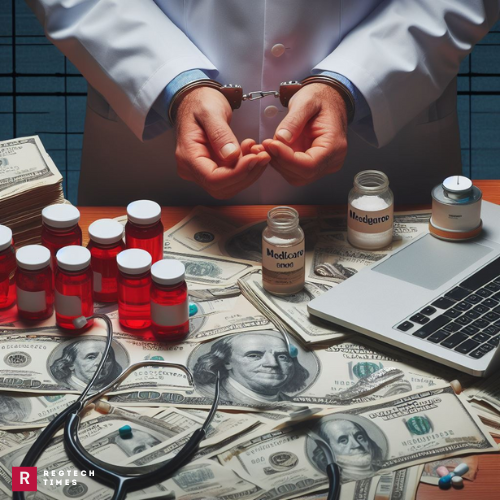Authorities find cases of false Medicare claims during the turmoil of the COVID-19 epidemic, posing a critical challenge to the integrity of healthcare institutions. The misapplication of emergency exemptions is clarified by a recent litigation settlement between the US, the State of California, and the other parties, which also emphasizes the US commitment to protecting government-funded initiatives.
Understanding the Medicare Fraud
The Centers for Medicare and Medicaid Services established waivers to expedite healthcare procedures and protect hospital resources as the pandemic spread across the country. But these waivers turned into a haven for organizations like ReNew Health Consulting Services LLC and ReNew Health Group LLC, as well as two business leaders to take advantage of. They allegedly took advantage of the loose regulations by filing fraudulent Medicare Part A claims for residents of assisted living facilities.
Misuse of Waivers
Originally designed to give priority to patients with severe diseases or injuries, the waivers were altered so that patients who had only been in close contact with people infected with COVID-19 were included. By regularly filing claims for nursing home residents without COVID-19 or any other acute illness or injury, defendants intentionally took advantage of this waiver. The defendants misrepresented the severity of the patients’ conditions in order to avoid the need for a hospital stay, which resulted in unfair reimbursements.
Legal Response
Brian M. Boynton, Principal Deputy Assistant Attorney General, emphasizes the Justice Department’s steadfast dedication to preventing fraud, especially in times of public health emergency. Martin Estrada, the U.S. Attorney, stresses the significance of pursuing cases involving false claims, particularly in vital healthcare institutions. Medicare frauds affects the humanity.
Whistleblower Intervention
A lawsuit filed under the False Claims Act’s whistleblower provisions served as the impetus for the inquiry. The importance of cooperative efforts between governmental bodies and private watchdogs was highlighted by the critical role that Bay Area Whistleblower Partners played in exposing the fraudulent operations.
Settlement Terms
As per the terms of the settlement, the defendants will pay the federal government $6,841,727 and the state of California $242,273 plus interest, for a combined amount of nearly $7 million. A sizable portion of the recovery, totaling $1,204,280 plus interest, will also go to Bay Area Whistleblower Partners. This underlines the incentives for people who come forward to report misconduct.
Legal Proceedings
The continuous attempts to pursue accountability in cases of healthcare fraud are highlighted by the case, United States and State of California ex rel. Bay Area Whistleblower Partners v. ReNew Health Group LLC et al. Together with cooperating agencies, Senior Trial Counsel Albert P. Mayer and Assistant U.S. Attorney Karen Y. Paik have been crucial in resolving the legal complexities of the case.
Impact on Healthcare Programs
This case serves as an eerie cautionary tale of the vulnerabilities in the healthcare system, particularly in times of crisis, even though the settled claims are still allegations. It highlights how strict control and enforcement are required to guarantee appropriate resource distribution. The event highlights the necessity for ongoing vigilance to protect taxpayer dollars and emphasizes the need of upholding integrity in the Medicaid programs to avoid medicare frauds. Proactive actions are required going future to stop similar exploitation and guarantee that resources are allocated to people who actually need medical attention.
The latest settlement demonstrates the unwavering dedication to maintaining the integrity of the Medicare and Medicaid programs even as the healthcare landscape changes. Authorities convey a clear message that exploitation will not be allowed, especially in the face of public health emergencies, by holding individuals who attempt to swindle such programs accountable. In order to protect taxpayer-funded healthcare projects going ahead, cooperation between government agencies, legal entities, and whistleblowers is essential.



